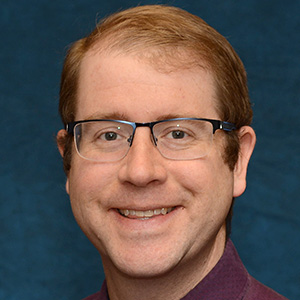Funding from the Taubman Institute has helped a team of researchers develop a new approach to treating aggressive brain tumors.
Daniel Wahl, MD, PhD, a radiation oncologist and researcher at Michigan Medicine, says an existing drug used to prevent organ transplant rejection may make radiation therapy more effective for glioblastoma patients by targeting a critical metabolic pathway and disrupting its ability to repair the tumor’s DNA damage caused by radiation.
Dr. Wahl, the Taubman Institute’s William Parfet Emerging Scholar, and co-author Yoshie Umemura, M.D., an assistant professor of neurology, are launching a research study in human patients based on the team’s research.
“Radiation therapy is a key treatment for nearly every patient with glioblastoma, and resistance to radiation leads to a recurrence of the cancer. So, finding new ways to overcome this resistance could help improve outcomes for many patients,” says Dr. Wahl. “And because of the variety of genetic alterations seen in glioblastoma, we wanted to find a way to overcome this resistance that would work across genotypes.”






